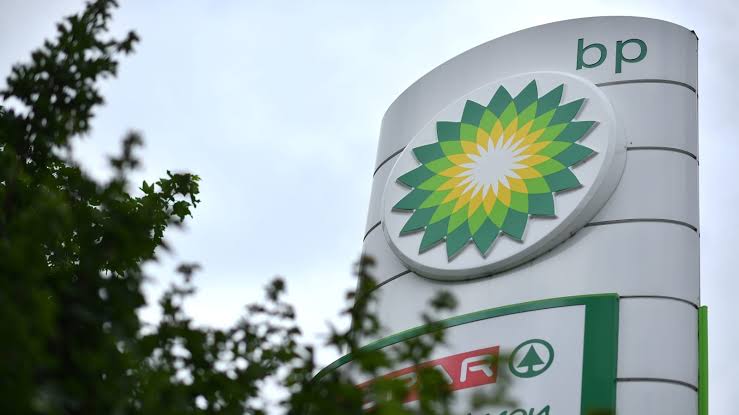British Petroleum (BP) reported a loss of $20.4 billion, and an underlying replacement cost profit of $6.2 billion, in its first-quarter 2022 results statement published on Tuesday.
The reported loss for the quarter was primarily due to BP’s decision to exit its Rosneft shareholding and includes adjusting items before tax of $30.8 billion, BP outlined. This figure compared with a profit of $2.3 billion in the fourth quarter of 2021 and a profit of $4.6 billion in the first quarter of 2021.
BP’s first-quarter 2022 underlying replacement cost profit of $6.2 billion marked an increase from the $4.1 billion recorded in the previous quarter and the $2.6 billion recorded in the first quarter of last year. The 1Q 2022 underlying replacement cost profit was said to be driven by exceptional oil and gas trading, higher oil realisations and a stronger refining result, partly offset by the absence of Rosneft from the first quarter underlying result.
BP reported an operating cash flow of $8.2 billion during the first quarter, compared to $6.1 billion in 4Q 2021 and 1Q 2021, and a surplus cash flow of $4.1 billion, compared to $2.9 billion in 4Q 2021 and $1.6 billion in 1Q 2021. The company’s net debt was said to have fallen to $27.5 billion at the end of the first quarter of 2022. This figure stood at $30.6 billion in 4Q 2021 and $33.3 billion in 1Q 2021.
“In a quarter dominated by the tragic events in Ukraine and volatility in energy markets, BP’s focus has been on supplying the reliable energy our customers need,” BP’s Chief Executive Officer, Bernard Looney said in a company statement.
“Our decision in February to exit our shareholding in Rosneft resulted in the material non-cash charges and headline loss we reported today. But it has not changed our strategy, our financial frame, or our expectations for shareholder distributions,” he added in the statement.
“Importantly, BP continues to perform and step-by-step we are making progress executing our IEC strategy – producing resilient hydrocarbons to provide energy security while investing with discipline in the energy transition,” Looney continued.
BP To Invest Up To $22.5B In the UK
In a separate statement published on 3rd May, BP announced that it intends to invest up to $22.5 billion (GBP 18 billion) in the UK’s energy system by the end of 2030.
The move demonstrates BP’s firm commitment to the UK and helps the country to deliver on its bold ambitions to boost energy security and reach net zero, BP outlined in a company statement. BP noted in the statement that it intends to continue investing in North Sea oil and gas while driving down operational emissions and that it is also in action on a range of lower-carbon energy investments in the UK, which the company said are expected to bring jobs and develop new skills and capabilities.
“We’re backing Britain,” Looney said in a company statement.
“It’s been our home for over 110 years, and we’ve been investing in the North Sea oil and gas for more than 50 years. We’re fully committed to the UK’s energy transition – providing reliable home-grown energy and, at the same time, focusing on the drive to net zero,” he added.
“And we have ambitious plans to do more and to go faster. Our plans go beyond just infrastructure – they see us supporting the economy, skills development and job opportunities in the communities where we operate. We are all in,” Looney continued.
BP highlighted that, in 2019, an estimated 0.5 per cent of UK GDP was supported by the company’s activities. The company also outlined that it anticipates paying up to $1.25 billion (GBP 1 billion) in taxes for its 2022 North Sea profits. BP pointed out that this would be on top of around $0.31 billion (GBP 0.25 billion) that it has paid annually in other taxes in the UK in recent years.
Last month, BP announced new plans to invest $1.25 billion (GBP 1 billion) in electric vehicle charging in the UK, “supercharging the roll-out of fast, convenient charging across the country”. BP pulse, the company’s EV charging business, intends to invest over the next 10 years, helping to meet the UK’s fast-growing demand for EV charging and support the country’s transition to low carbon transportation for both consumers and fleet vehicles, BP outlined.
During the same month, BP revealed that it and Aberdeen City Council had signed an agreement to form a joint venture partnership that will deliver a scalable green hydrogen production, storage and distribution facility in the city powered by renewable energy. The Aberdeen Hydrogen Hub will be developed in three phases in response to growing demands for hydrogen, according to BP.
•By Andreas Exarheas|Rigzone Staff
To contact the author, email andreas.exarheas@rigzone.com


